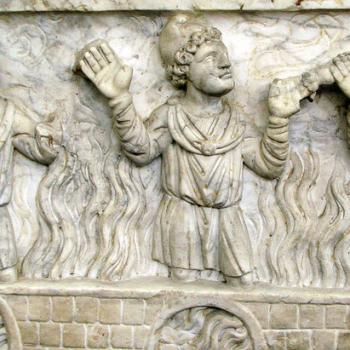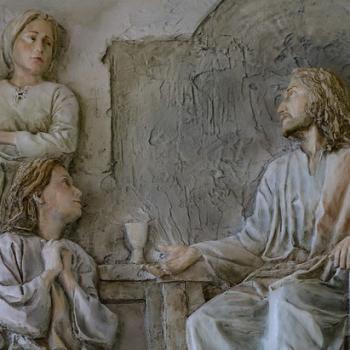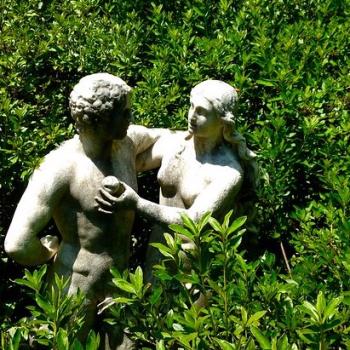
The Imago Dei and Humanity’s Purpose
The first chapters of Genesis offer clues through key terms for how humanity should function. The Imago Dei presents a unique perceptive of our royal and servant status. Surprisingly, all humans bear the crown of royalty with the responsibility of ruling and subduing the earth according to God’s purposes. The first three chapters of the book of Genesis help us identify our relationship with God, each other, and creation. What distinctive role(s) did the first couple play in the garden in light of their unique position among creation as image bearers? How do these roles extend to all humankind beyond the garden, and what implications do new creation Christ-followers experience? How did sin affect the expression of the Imago Dei? Exploring Genesis 1:28 and Genesis 2:15 will guide my argument through a brief survey of Genesis 1-3.
Servanthood and Royalty: A Word Study
Following an approach modeled after a biblical theology of the Imago Dei, I will demonstrate humankind as God’s representative, arguing for the biblically ethical implications of royalty and servanthood for humanity. The basis of such treatment will begin with a word study of two sets of Hebrew words – kāḇaš and rāḏâ in Gen 1:28 describing humanity’s royal role in creation as well as šāmar and āḇad in Gen 2:15 describing humanity’s role as servants. For a great explanation of humanity’s role as priests in the garden, check out this video from The Bible Project. https://bibleproject.com/explore/video/priests-of-eden/
Subdue/Rule/Serve/Keep
God blessed them and said to them,
Be fruitful and increase in number; fill the earth and subdue it. Rule over the fish in the sea and the birds in the sky and over every living creature that moves on the ground (Gen 1:18 ESV).
And YHWH Good then took the man and causes him to rest in the Garden of Eden to serve it and keep it (Gen 2:15 LSV Literal Standard Version).
What did it mean for the first humans to subdue the earth, rule the animals, and keep the garden? How does this language help reveal God’s purpose for humanity beyond Eden?
kāḇaš and rāḏâ
The first two terms of interest – kāḇaš and rāḏâ – appear together only in Gen 1:28. The verb kāḇaš occurs 14 times in the Hebrew Old Testament and is always rendered subdue, identifying a stronger party’s action on a weaker party. The most common subject of kāḇaš is the earth involving not just agrarian dominion but, more broadly, nations, territory, and people on behalf of another. Sometimes kāḇaš expresses individual sexual assault against a woman (Esth 7:8), enslaved people (Jer 34:16), or even the subjugation of sin (Mic 7:19). Genesis 1:28 represents the broadest semantic application implying humanity’s rule over not just the animal kingdom but the entire world. The verb rāḏâ occurs 27 times in the Hebrew Old Testament and first appears in Gen 1:26, meaning to have dominion. It appears again in Gen 1:28 alongside kāḇaš and usually has a personal subject denoting action performed by a human.
Ancient Near Eastern Cultural Implications
The verb rāḏâ sometimes has a surprisingly aggressive connotation. The expression of its dominion carries with it the notion of trampling or treading (e.g., the wine press). The object of kāḇaš in verse 28 is the land. The objects of rāḏâ in verses 26 and 28 are the fish, the birds, and every living thing that moves on the earth. The language of dominion implied the conferment of royal status onto human beings. This concept originated in the Babylonian and Egyptian royal courts, according to Claus Westermann in his commentary on Genesis 1-11. Westermann also indicates the use of royal language corresponding to rāḏâ in the “court language of the great empires” confers onto all of humanity a royal status when applied to the dominion over the animals.
Ethical Considerations
However, having dominion over the animals cannot mean ruthless killing or exploitation when viewed in the Imago Dei. God, in Gen 1:28, empowers humankind by blessing them to rule as kings over nature to act as His representatives. As God’s representatives, humanity is “summoned to maintain and enforce [His] dominion over the earth.” Ethically, society may only act for God’s good purposes. Therefore in Gen 1:28, kāḇaš and rāḏâ are expressions of the Imago Dei as Yahweh’s intention for humanity to rule and subdue all of creation by God’s will. Human beings were to be the vice-regents of God on the earth. This responsibility involved bringing the natural world out of chaos into submission, expanding Yahweh’s rule beyond the borders of Eden.
āḇad and šāmar
The following two terms, ʿāḇad and šāmar found together in Gen 2:15 reveal Adam (and subsequently) Eve’s role in the Garden of Eden. In Gen 2:15, the verb āḇad is often translated work (ESV, NIV), cultivate (LXX, NASB), dress (ASB, KJV), and till (JPS). H. Ringgren notes in his article, āḇad from the Theological Dictionary of the Old Testament, that though the semantic range of āḇad includes to serve, when applied to inanimate objects, i.e., the man, the verb means to work on, develop, and cultivate.
More Than Gardeners
As some early Jewish witnesses infer, Adam and Eve’s role in the garden limited them to simple garden tasks. According to Josephus, Adam and Eve were placed in the Garden “to take care of the plants.” (Ant. 1.1.3). However, the verb šāmar is often translated as to keep (ESV, LXX, KJV, NASB), to take care of (NIV), and to tend (JPS). With the accusative, the verb is most often translated to keep or watch over. This verb is also often translated to guard but is also translated preserve (Job 2:60), protect (Ps 121:7), or devote oneself to (Hos 4:10), among other nuanced meanings. As some early Jewish witnesses infer, Adam and Eve’s role in the garden should be viewed simply as gardeners. According to Josephus, Adam and Eve were placed in the Garden “to take care of the plants.” (Ant. 1.1.3).
Secure the Garden!
Humanity’s tasks involved nurturing the ground for the plants to flourish and guarding and protecting the territory against unwanted intrusion. Regardless of the lack of an immediate threat, the verb šāmar perhaps anticipates the Serpent’s intrusion in chapter 3, as Nahum Sarna notes in his Genesis article in the JPS Torah Commentary. As Gen 3 indicates, Adam’s disobedience and failure to guard and protect the garden against intrusion resulted in the Fall. After the Fall, the next occurrence of āḇad and šāmar together, finds God stripping Adam and Eve of their role as protectors of the garden and giving it to the cherubim:
Therefore the LORD God sent him out from the garden of Eden to work – āḇad the ground from which God took him. He drove out the man, and at the east of the garden of Eden, he placed the cherubim and a flaming sword that turned every way to guard – šāmar the way to the tree of life. (Gen 3:24, ESV).
The effects of the Curse – Hierarchy in Humanity
Because of Adam’s sin, the royal couple has now forfeited their role as guardians and protectors of the garden. Adam’s work is now cursed, and his labor is now strenuous. Hierarchy now replaces co-regency. The man now rules over the women. Patriarchy introduces a foreign characteristic into human relationships, resulting in abuse and unrestrained power. An early Christian interpretation of Gen 1:28 by Chrysostom suggests just how deeply patriarchy had affected the way early theologians understood the male/female dynamic by suggesting the man not only is to command all of the creatures but even the woman as well, “who is subject to [man’s authority]” (Hom. Gen. VIII). Likewise, an early Midrash of the same verse takes the woman as the feminine object of kāḇaš instead of the ground, rendering the verb’s nuance subduing her – the woman. (Gen. Rab. VIII 12)
No Predefined Roles for Men and Women in the Imago Dei
The Fall could do nothing to destroy or even mar the image of God. Humanity’s rebellion distorted the expression of God’s image in our actions, attitudes, and relationship with God and others. The only true expression of God’s image in humanity is Christ, who was sinless. Humanity failed to serve and rule as God intended. As alluded to in Chrysostom, one of the consequences of sin led to patriarchy. Hierarchy between men and women became an expression of this consequence. The seemingly overwhelming witness of past cultures identifies the male as dominant and the female as subordinate. God’s original order in Genesis 1 and 2 knows nothing of a God-ordained “role” of women subjugated to men.
māšal
The Genesis narrative introduces a new word for rule māšal in the story of Cain and Abel. God interrupts Cain’s angry response to his favorable regard for Abel’s offering (Gen 4:7). In what appears to be the beginnings of a redemptive tone of rule, humankind is now to rule over sin – māšal that it would not have dominion. The world grew darker and more violent amid human rebellion. God’s redemptive purposes shine toward Noah with language reminiscent of Gen 1:28. The blessing and the promise of Gen 1:28 repeats for Noah in Gen 9:1. Humanity’s rule over creation would continue, and the animals would respond to their king.
The fear of you and the dread of you shall be upon every beast of the earth and upon every bird of the heavens (Gen 1:28).
The Trajectory of the Imago Dei
God’s covering Adam and Eve’s nakedness in the garden set the trajectory of redemption, culminating at the cross. The path toward new creation continues as we recognize God’s redemptive intervention by clothing them with animal skins. Yahweh crowed the first couple with royalty as the first rulers over creation. They were to serve in humility on an equal basis, both subjugated to God but spurned God’s design to rule. Now power struggles exist where there were none.
Christ the Perfect Image Bearer
Notwithstanding, God calls both men and women to represent Him in a world still marred with sin. Sin affects humanity, but honor never departs because of its creation in God’s image. Christ is the perfect image bearer. His defeat of Satan reversed Adam and Eve’s yielding to temptation. Yahweh opened the door for humanity to rule and serve as God intended – in humility and equality.












